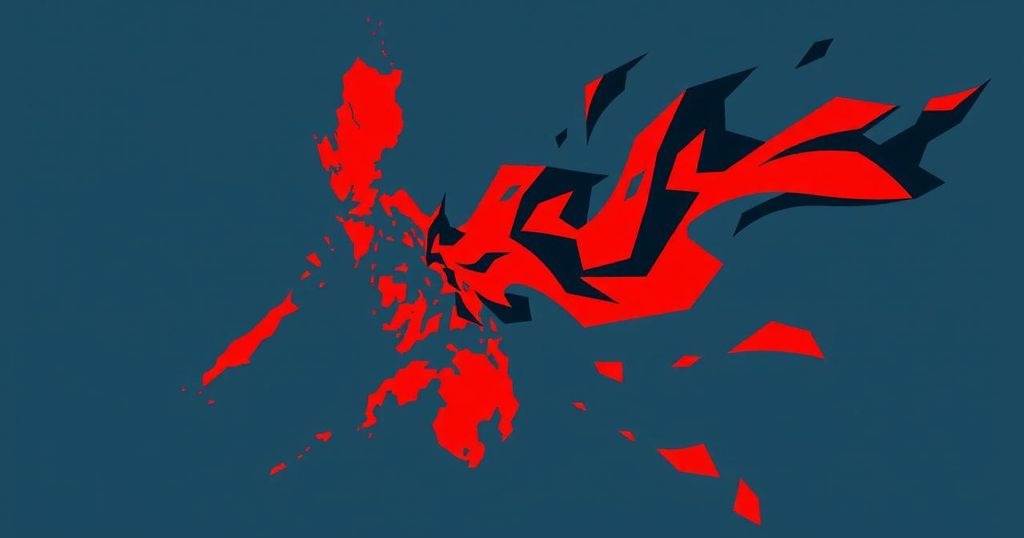Duterte’s Arrest Amplifies Political Tensions in the Philippines

The arrest of former President Rodrigo Duterte by President Ferdinand Marcos Jr.’s government intensifies their ongoing political feud, raising concerns about economic stability in the Philippines. The ICC charges against Duterte, coupled with Sara Duterte’s impeachment, suggest a significant shift in power dynamics. Public demonstrations reflect divided sentiments regarding these developments, which may influence future political strategies and elections.
The recent arrest of former Philippine President Rodrigo Duterte has escalated tensions between him and his successor, President Ferdinand Marcos Jr. This political confrontation appears to threaten the stability of the Philippines, which was previously experiencing significant economic growth. Marcos’ government detained Duterte to facilitate his extradition to the International Criminal Court (ICC), a situation exacerbated by the impeachment of Vice President Sara Duterte, Rodrigo’s daughter, by Marcos’ allies.
Marcos’ actions against his political opponents represent a significant risk, particularly with legislative elections approaching in May. The Dutertes remain influential in Philippine politics, with Sara considered a strong candidate for the 2028 presidential election. Duterte remains popular among a substantial segment of the populace, as evidenced by the warm reception he received shortly before his arrest.
The potential consequences of this political feud are alarming, as instability could affect public and business confidence, threatening the economic growth of the Philippines. In fact, the benchmark stock index plummeted more than 2% following the news of Duterte’s arrest, the most substantial decline since January 31st. Economists worry that if economic conditions deteriorate, public sentiment may shift in favor of the Duterte clan.
Faced with ICC charges related to his controversial anti-drug campaign, Duterte’s predicament is compounded by changes in Marcos’ foreign policy, which has moved away from pro-China sentiments to cultivate closer relations with the United States amid clashes in the South China Sea. This shift marks a stark contrast to Duterte’s previous approaches.
In the wake of Duterte’s arrest, the Chinese government expressed concern over the ICC’s proceedings, urging it to act judiciously to avoid political implications. Duterte, known for his confrontational governance style, remains a popular figure despite international criticism of his methods during his presidency, having garnered widespread support.
Notably, Duterte sought the intervention of the Philippine Supreme Court to contest the ICC’s enforcement of its arrest order, citing the country’s sovereignty, a point also emphasized by his daughter Sara, who expressed her disapproval of the government’s actions. She characterized this surrender of a former president to foreign jurisdiction as an affront to the nation’s dignity and sovereignty.
Sara Duterte, who has been embroiled in controversy following her impeachment on serious allegations, sees her father’s arrest as a direct attack on their family. There are indications that the Marcos administration might leverage this political climate to press for her ouster. Public rallies in support of Duterte and against the Marcos government continue, reflecting the divide in public sentiment.
In summary, the arrest of Rodrigo Duterte by Ferdinand Marcos Jr.’s government marks a significant turning point in Philippine politics, heightening tensions and potentially destabilizing the country’s economy. As both political figures navigate the fallout from this crisis, the implications for future elections and the political landscape remain uncertain. The authoritarian style and enduring popularity of the former president highlight the complexity of Philippine political dynamics, as the country grapples with issues of sovereignty, public perception, and governance.
Original Source: gulfnews.com







